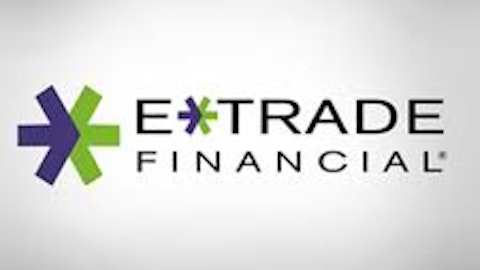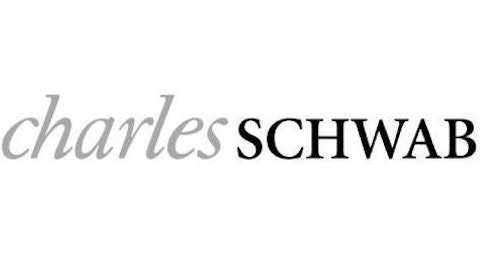After years of outflows from E TRADE Financial Corporation (NASDAQ:ETFC) equity funds, should investors finally invest in the brokerage stocks as the money starts flowing back? One key to the equation is that most of the money flowed into bond funds that have low average fees, placing an importance on finding the asset managers with the least exposure to bond funds. Or at least the ones that will see those funds rotate into equity funds.
According to TrimTabs, January had a record $77 billion flow into U.S.-listed equity funds (mutual funds and ETFs). While investors can debate whether these flows will continue, it is clearly worth reviewing the stocks that will benefit from a growth in equity investments that typically have higher fees than fixed income funds and especially money market funds. The real question is whether investors should move into fund managers or brokerage services. This article will focus on some of the leading brokerage firms.

Mega-cap leader
Charles Schwab Corp (NYSE:SCHW) has long been a leading provider of brokerage services for individual investors and independent investment advisors. The company has an incredible $1.95 trillion in total client assets, up 16% over December 2011.
The stock is valued at $21.5 billion and trades for a surprising 19x forward earnings. Analysts only expect a long-term growth rate of around 13% suggesting the price has already moved up expecting huge fund flows.
Past online leader
E*TRADE Financial was a poster child of the financial crisis. The leading provider of internet-based stock trading moved toward becoming a bank that offered mortgages. That business was built up during the peak housing years leading to devastating loses for the company. At the same time, investors slowed down trading activity hurting the core business of E*TRADE.
Recently though, the flows into the stock market led to DARTs of 154K in January. Those totals were up 18% over December and 6% over last January. At $144 billion, total security holdings were up 3.7% sequentially.
Current online leader
TD Ameritrade Holding Corp. (NYSE:AMTD) was long known as a pioneer in online investing though usually overshadowed by E*TRADE until the financial crisis. The company now caters to independent registered investment advisors (RIAs) along with individual investors.
The company reported average DARTs of 387K in January, up 3% from last year and 17% from December. Ameritrade reported total client assets of $499 billion, up 17% over last year.
Potential game changer
Interactive Brokers Group, Inc. (NASDAQ:IBKR) was a small, private operation when the markets collapsed back in 2000. The company offers a whole suite of trading products on 100 electronic exchanges and trading venues worldwide at low commissions. The average commission is only $4.49.
Interactive Brokers reported 460K DARTs for January, 10% higher than prior year and 16% higher than the prior month. The company reported that ending customer equity jumped to $34.4 billion, 27% higher than last year. The really interesting number was customer margin loan balances are up 50% over the prior year at $11.1 billion.
5-Year Total Return Chart
The shift to international and fixed income funds over the last 5 years crushed all but Charles Schwab over that time period. As the chart below shows, all of the stocks underperformed the S&P 500 during that time period:

SCHW Total Return Price data by YCharts
Conclusion
Based on the initial January results, all of the firms are seeing very positive trends. Clearly an increase in the stock market will bring individual investors back to making equity trades that benefit these companies, but unfortunately most of the stocks have all ready seen an initial pop on those expectations.
As roughly 5 years have passed since the last equity rush, one could expect a new trend to emerge. Investors looking for access to an almost unlimited list of exchanges might favor Interactive Brokers while anybody still seeing the market as risky might move toward Charles Schwab or even Ameritrade. Due to the relatively massive size of Schwab and valuation, it appears that Ameritrade offers the better value while Interactive Brokers provides the best speculative play in the rebounding sector.
The article Should Investors Buy the Brokerage Firms on Rebounding Equity Flows? originally appeared on Fool.com and is written by Mark Holder.
Copyright © 1995 – 2013 The Motley Fool, LLC. All rights reserved. The Motley Fool has a disclosure policy.



